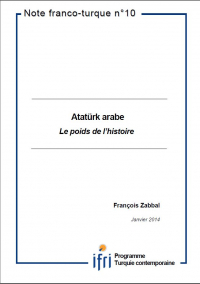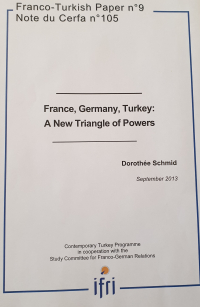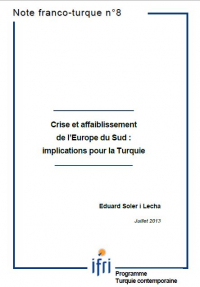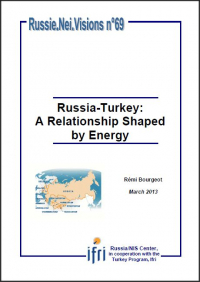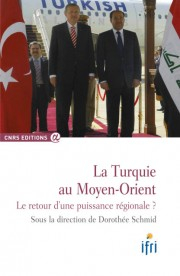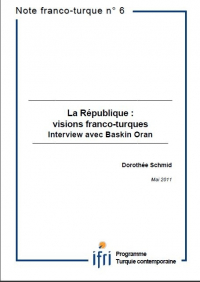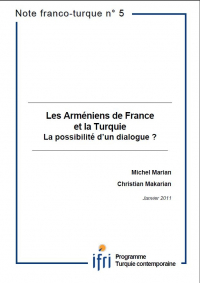Recent discussion surrounding a 'Turkish model' for the Arab world has centered mainly on the achievements of the AKP in Turkey and its supposed ideological proximity to the political parties that have arisen from the Muslim Brotherhood movement.

Türkiye
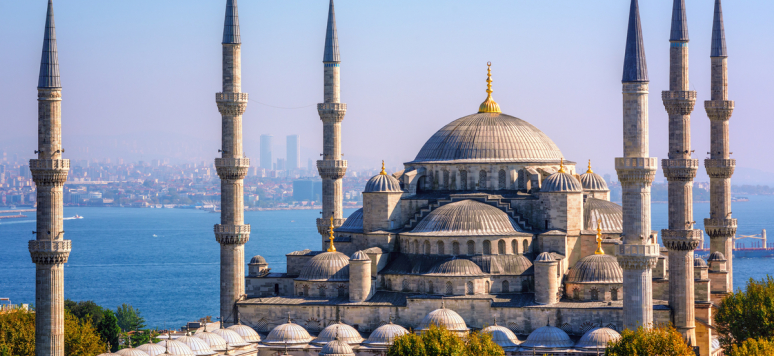
Türkiye today evolves very fast, due to the joint influence of external factors and internal dynamics that are sometimes difficult to grasp.
The beginning of negotiations to adhere to the European Union allowed the Turkish government to pursue a series of political reforms in order to conform to the criteria demanded by Copenhagen. After many years of severe structural adjustment the Turkish economy benefits from outstanding growth rates that confirm its status as a promising emerging market. Turkish civil society also seems to acquire and strengthen an autonomous voice in the debates to come.
However, there are many uncertainties that are here to stay. As this process of change is still unfinished, the permanent state of political crisis comes at the expense of economic stability. Institutional models and political culture are undergoing a phase of mutations whose outcomes are difficult to predict. Experiencing a rural exodus and new forms of social mobility, the Turkish population is aware of the important consequences these profound changes have on the social contract and national consensus. On a diplomatic level, Türkiye is oscillating between the ardent European demands, exercises of power that may lead to a loss in sovereignty, and the other tempting alliances that could strengthen its status as a regional power that cannot be ignored.
Far from simplifying the Turkish mosaic, the intensification of its relations with the European Union seems to complicate it: new subject positions emerge that emphasize the need to create new tools of understanding. We must look at contemporary Turkish reality with a new eye in order to spot these new actors, factors of mobilization and lines of cleavage that weigh on Türkiye’s choices.
Senior Research Fellow, Head of Ifri’s Türkiye and...
Research Fellow, Türkiye and Middle East Program
...Associate Research Fellow, Türkiye and Middle East...
Associate Research Fellow, Türkiye and Middle East Program
...Associate Research Fellow, Sub-Saharan Africa Center and Turkey/Middle East Program
...Relations between Germany, France and Turkey have been strictly bilateral for a long time, with varying intensity, styles and areas of cooperation. The European perspective that is now part of these relations has introduced a three-way dynamic.
The twists and turns of the economic and political crisis in southern Europe are now an important parameter for relations between Europe and Turkey.
Deepening energy ties between Turkey and Russia prompt questions as to the balance of power between the two countries, with the former relying heavily on the latter for its energy needs.
Turkey's re-imagined neighborhood policy after the Arab Spring Actuelles de l'Ifri, April 19th, 2012
Joshua W. Walker was a speaker at the international conference on “The international consequences of the Arab Spring” held at Ifri on March 13th, 2012. This paper is a follow up on his oral intervention.
Chapitre paru dans D.Schmid (dir.), La Turquie au Moyen-Orient: le retour d'une puissance régionale ?, CNRS éd, décembre 2011, p. 185-204
Speakers :
...For a long time, the Turkish Republic created by Mustafa Kemal Atatürk was regarded by France's elites and political class as a sister republic: secular and Jacobin, the concrete embodiment of the universalism of the shared values of the French Revolution. However, the political change that...
For several decades, French persons of Armenian origin have played a special role in Franco-Turkish relations. History explains this. Armenians originally came to France fleeing the massacres at the end of the Ottoman Empire, and for nearly a century they have integrated perfectly into the...
Turkey has become a recurrent issue in France's domestic political debate, following the referendum campaign on the European Constitutional Treaty in spring 2005. While the question of Turkish EU membership is itself a point of discussion, evoking Turkey also touches on other sensitive...
Aucun résultat








